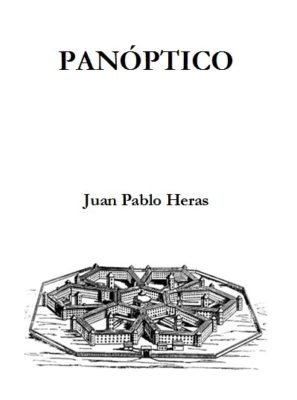Panóptico
Panopticon

Panóptico planta sus raíces en numerosos casos recientes de funcionarios que denunciaron casos de corrupción municipal que acabaron desvelando tramas criminales organizadas en el seno de diversos partidos políticos. Sin embargo, y pese al valor ejemplar de su acción, los denunciantes sufrieron sus consecuencias más que los propios acusados. El poder político establecido les sometió a acoso, persecución, aislamiento social y difamaciones públicas, con el fin de desincentivar futuras delaciones y convertir en actos heroicos lo que deberían ser obligaciones ciudadanas.
En Panóptico, sin embargo, tanto los políticos corruptos como los delatores acosados son personajes ausentes. El foco, esta vez, se pone sobre los demás. Sobre aquellos que no se beneficiaron directamente de la corrupción pero no movieron un dedo para evitarla. Una funcionaria compañera de la delatora, una concejala, un contratista, un conserje y un jefe de prensa. El alma de un ayuntamiento cuya podredumbre ya no se podía
Panopticon is inspired by a number of recent cases of civil servants who have reported municipal government corruption only to find themselves uncovering organised criminal schemes at the heart of various political parties. Despite the bravery of their actions, the people who reported these acts suffered more than the people accused. The political establishment subjected them to harassment, persecution, social isolation and public defamation, with the goal of discouraging others from making similar allegations in future and turning what should be a simple civic duty into an act of heroism. In Panopticon, however, both the corrupt politicians and the harassed whistleblowers are absent characters. This time, the focus is on other people: on those people who did not profit directly from the corruption but who did not lift a finger to prevent it. A whistleblower’s co-worker, a councillor, a contract worker, a concierge and a press officer. The heart and soul of a town hall, whose rottenness could no longer be hidden. We are interested in their view, the sidelong glance that some cast at others, and the uncomfortable feeling that their every step is being watched after years of opaque impunity.
Panopticon is inspired by a number of recent cases of civil servants who have reported municipal government corruption only to find themselves uncovering organised criminal schemes at the heart of various political parties. Despite the bravery of their actions, the people who reported these acts suffered more than the people accused. The political establishment subjected them to harassment, persecution, social isolation and public defamation, with the goal of discouraging others from making similar allegations in future and turning what should be a simple civic duty into an act of heroism. In Panopticon, however, both the corrupt politicians and the harassed whistleblowers are absent characters. This time, the focus is on other people: on those people who did not profit directly from the corruption but who did not lift a finger to prevent it. A whistleblower’s co-worker, a councillor, a contract worker, a concierge and a press officer. The heart and soul of a town hall, whose rottenness could no longer be hidden. We are interested in their view, the sidelong glance that some cast at others, and the uncomfortable feeling that their every step is being watched after years of opaque impunity.
| EspañolSpanish | |
| DramaDrama | |
| 5 | |
| 3 | |
| 2 | |
| 1 | |
| 60 - 90 min. | |
| ContemporáneaContemporary | |
| 2015 | |
Imagenes no disponibles
Nota: “Todos los datos han sido aportados por los/as autores/as, por lo tanto, la AAT no se responsabiliza de su veracidad”.
Note: "All data have been provided by the authors, therefore, the AAT is not responsible for its accuracy".



